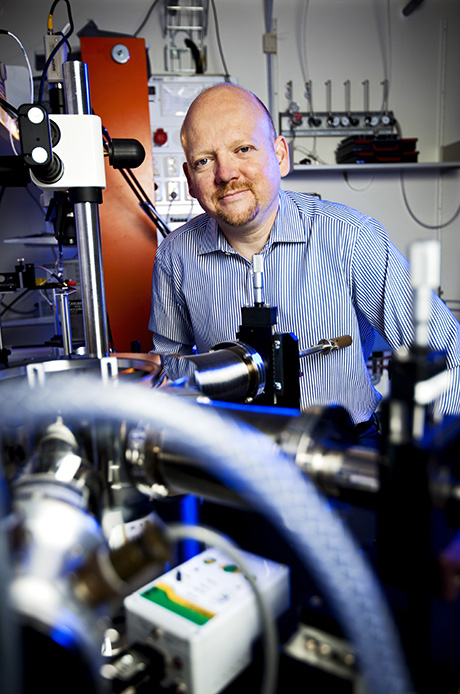In the current ERC project TOPSPIN, researchers will develop so-called spin-Hall oscillators to demonstrate neuromorphic computing and ultrafast pattern recognition.
 - I am very honored and grateful for the opportunity to do research in a project that can lead to breakthroughs in the new area of neuromorphic computing. We hope to make pattern recognition and similar calculations related to cognitive functions and artificial intelligence.
- I am very honored and grateful for the opportunity to do research in a project that can lead to breakthroughs in the new area of neuromorphic computing. We hope to make pattern recognition and similar calculations related to cognitive functions and artificial intelligence.
The researchers' goal is to show that there are completely different and much faster and more energy saving methods for making these calculations, compared to what computers can handle today.
- Our goals are set very high and we hope that our project will lead to a technology shift from digital calculations to calculations based on oscillator networks. Where today's circuits have hit the speed limit at about 4 GHz, we will show calculations at frequencies above 100 GHz if everything goes as planned.
Many people have been involved in the research and the work on the ERC-application itself.
- I am very grateful for the support I received from the Department of Physics, from the Faculty of Science and from the University of Gothenburg over the years. I especially want to thank my group members for their fantastic work, Pro-Vice-Chancellor Mattias Goksör who was my former Head of department, Måns Henningsson who is my current Head of department, and Maria Enge at the Grants Office who has helped me a lot with my applications, says Johan Åkerman.
The project for TOPSPIN is awarded EUR 2.5 million.
About ERC Advanced Grant
The European Research Council awards ERC Advanced Grants to established and world-leading researchers aiming at pioneering breakthroughs with the highest scientific quality. The awards are up to EUR 2.5 million distributed over a five-year period. Out of 2052 applicants in the 2018 call, 222 were granted, of which 6 from Swedish universities.
 - I am very honored and grateful for the opportunity to do research in a project that can lead to breakthroughs in the new area of neuromorphic computing. We hope to make pattern recognition and similar calculations related to cognitive functions and artificial intelligence.
- I am very honored and grateful for the opportunity to do research in a project that can lead to breakthroughs in the new area of neuromorphic computing. We hope to make pattern recognition and similar calculations related to cognitive functions and artificial intelligence.